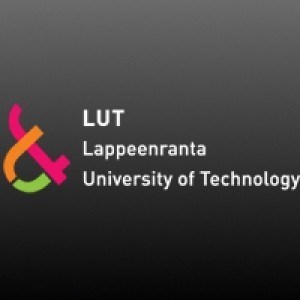Photos of university / #universityofhelsinki
The Bachelor’s Degree Programme in Neuroscience at the University of Helsinki offers a comprehensive introduction to the fundamental principles and latest developments in the field of neuroscience. Designed for students passionate about understanding the biological foundations of behavior, cognition, and mental processes, the programme provides a multidisciplinary approach that combines biology, psychology, neuroanatomy, molecular biology, and physiology. Throughout the programme, students will explore the structure and function of the nervous system, learning about neural development, neural signaling, neuroplasticity, and how these processes underpin various cognitive and behavioral functions. The curriculum emphasizes both theoretical knowledge and practical skills, including laboratory techniques, data analysis, and experimental design, to prepare students for careers in research, healthcare, or industry.
Students will have the opportunity to engage in cutting-edge research projects, internships, and seminars led by leading experts in the field. The programme also aims to foster critical thinking, problem-solving abilities, and scientific communication skills essential for advancing neuroscience research and applying knowledge to real-world challenges. As the field is highly interdisciplinary, students will benefit from collaborations with departments such as biology, psychology, medicine, and computer science, all within a vibrant academic environment. Graduates will be equipped with a broad understanding of neurological and psychiatric disorders, brain imaging technologies, and neuroinformatics, positioning them for further studies or employment in academia, healthcare, pharmaceuticals, or neurotechnology industries. The programme emphasizes a student-centered learning environment, supported by modern facilities and a rich array of educational resources. Graduates of the programme will be prepared to contribute meaningfully to the understanding of the nervous system, advancing scientific knowledge and improving health outcomes worldwide.
The Master's Degree in Neuroscience at the University of Helsinki offers a comprehensive and multidisciplinary education designed to prepare students for a variety of careers within the fields of neuroscience, biomedical research, and healthcare. The program provides an in-depth understanding of the structure and function of the nervous system, covering topics such as neuroanatomy, neurophysiology, cognitive neuroscience, and neuropharmacology. Students will explore both the molecular and cellular mechanisms underlying brain function and dysfunction, along with various methodological approaches, including advanced imaging techniques, electrophysiology, and computational modeling.
Throughout the program, students are encouraged to develop critical thinking and research skills by engaging in cutting-edge scientific projects and collaborations. The curriculum combines theoretical courses with practical laboratory work, enabling students to gain hands-on experience in experimental design, data analysis, and scientific communication. Special emphasis is placed on understanding neurological and psychiatric disorders, with coursework addressing the pathophysiology of conditions such as Alzheimer's disease, Parkinson's disease, depression, and multiple sclerosis.
The program also emphasizes the importance of translational research, aiming to bridge the gap between laboratory discoveries and clinical applications. Students may participate in research seminars, workshops, and internships within the university's extensive networks with hospitals and research institutes. This fosters an environment conducive to innovation and interdisciplinary collaboration.
Graduates of the Master's Degree in Neuroscience will be well-equipped to pursue doctoral studies, research positions in academia or industry, or roles within healthcare and biotechnology sectors. The program prepares students for a dynamic career path by providing a solid foundation in neuroscience principles, contemporary research methodologies, and exposure to emerging fields such as neuroinformatics, neuroengineering, and personalized medicine. All coursework is delivered in English, reflecting the university’s international outlook and commitment to excellence in scientific education.
The Master's Degree Programme in Neuroscience at the University of Helsinki requires applicants to have completed a Bachelor's degree or equivalent in a relevant field such as Biology, Psychology, or Medicine. Applicants must demonstrate proficiency in English, typically through standardized tests like the TOEFL or IELTS, unless they have completed their prior degree in English or in an English-speaking country. The program emphasizes multidisciplinary training, integrating knowledge from molecular biology, neuroanatomy, neurophysiology, cognitive neuroscience, and computational modeling.
Candidates are expected to have a solid foundation in biology, physics, mathematics, and statistics, which are essential for understanding the complex mechanisms underlying neural function. Prior research experience or coursework in neuroscience or related fields is advantageous and can strengthen the application. The program comprises coursework units, including compulsory courses in neurobiology, research methods, and ethics in neuroscientific research, along with elective courses that allow students to specialize in areas such as cognitive neuroscience, neurotechnology, or clinical neuroscience.
Research is a core component of the programme, and students are required to participate in laboratory work and a research project or thesis during their studies. The research facilities at the University of Helsinki include state-of-the-art laboratories and collaborations with national and international research institutes. To be eligible for admission, applicants must submit all required documentation via the online application system, including academic transcripts, degree certificates, a CV, a motivation letter, and references if necessary.
The University of Helsinki values applicants' motivation, relevant experience, and academic performance. The selection process may include interviews and assessments to evaluate the applicant's suitability for the programme. Upon successful completion of the Master's Degree in Neuroscience, students will have acquired the knowledge and skills necessary for careers in research, healthcare, or industry, and will be prepared to continue with doctoral studies if desired.
Funding options for the Neuroscience degree program at the University of Helsinki are diverse and accommodate both Finnish and international students. Typically, students may apply for various scholarships, grants, and financial aid sources offered by the university, the Finnish government, and other organizations. The University of Helsinki provides scholarships specifically for international students admitted to degree programs, which can cover partial or full tuition fees. These scholarships are usually merit-based but may also consider financial need, especially for students from certain regions. Finnish students enrolled in the program may have access to government-supported student grants and loans through the Finnish Student Finance Agency (Kela). Kela's student financial aid includes grants and income-based loans, which offer students the opportunity to finance their studies and living costs during their time at the university.
Additionally, students are encouraged to seek external funding sources such as national and international research grants, scholarships, or fellowships from scientific foundations or organizations related to neuroscience research. Many students also explore part-time work opportunities on or near campus to support their studies financially, although these are often limited by work hour restrictions for students. The university's Career Services offers support on employment options that balance well with academic commitments.
For students participating in Erasmus+ mobility programs, funding can also be supplemented through Erasmus grants, which cover travel and study-related expenses for a semester or year abroad at partner institutions. Moreover, the university provides guidance and counseling to help students identify suitable funding sources and prepare applications confidently.
In summary, the financing studies options for the Neuroscience program are multifaceted, including university scholarships, national grants, external funding, part-time employment, and international mobility grants, all designed to support students financially throughout their education.
The Master’s Degree Programme in Neuroscience at the University of Helsinki is a comprehensive and interdisciplinary program designed to provide students with a deep understanding of the complex mechanisms underlying the nervous system. The program is aimed at students who are interested in exploring various aspects of neuroscience, including molecular, cellular, systems, cognitive, and behavioral neuroscience. It emphasizes both theoretical knowledge and practical skills, enabling graduates to pursue careers in research, healthcare, or industry. The curriculum includes core courses that cover fundamental concepts in neuroscience, such as neuroanatomy, neurophysiology, neuropharmacology, and neuroimaging techniques. Students also have the opportunity to engage in research projects and laboratory work that reinforce their understanding of experimental methods and data analysis. The program typically offers specializations or tracks, allowing students to focus on their areas of interest, such as neurobiology, cognitive neuroscience, or clinical neuroscience. Collaboration with local hospitals and research institutes provides opportunities for internships and exposure to clinical applications. The program is taught by experienced faculty members who are active researchers in their fields. Graduates of the program are equipped with a solid scientific foundation, critical thinking skills, and the ability to work independently or as part of a team. They are prepared for careers in academic research, pharmaceutical companies, healthcare sectors, or continue their studies at the doctoral level. The University of Helsinki supports students with modern teaching facilities, research resources, and opportunities for international mobility. Overall, the Neuroscience Master’s Programme aims to foster innovative thinking and contribute to the advancement of knowledge in understanding the brain and nervous system functions.

